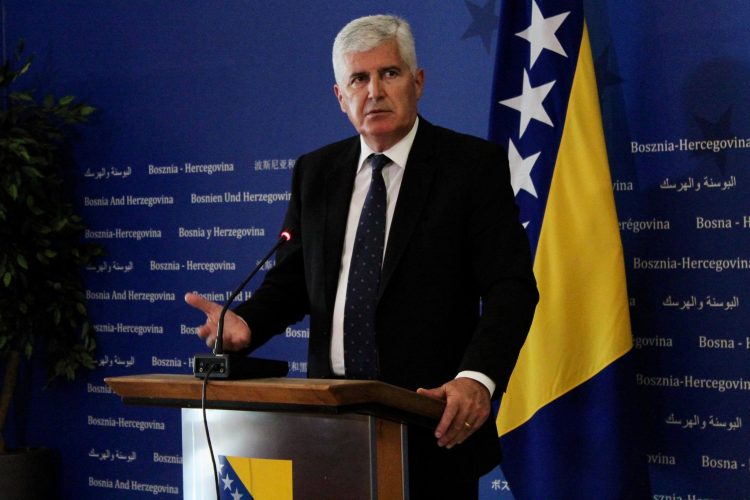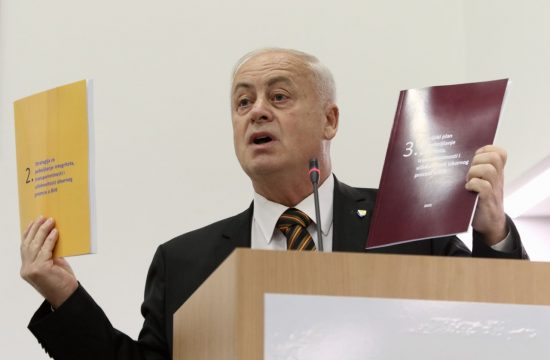
Bosnia and Herzegovina is threatened with the escalation of political crisis and the only way to avoid it is to talk and reach an agreement on open issues, said leader of the Croat Democratic Union (HDZ BiH) Dragan Covic.
Speaking to media on Thursday, Covic said that the ongoing discussions about the wartime period and related topics set aside Bosnia's Euro-Atlantic path and the electoral reform, although it is about time to reach an agreement on that.
“Indications of such crisis come almost on daily basis from various centres of power,” said the Croat leader without specifying to whom he referred.
This month is the right moment for talks, according to Covic, to avoid the situation in which the institutions will not be able to work, mostly because the next year is the year of elections and many important decisions need to be made this year.
He also commented on the recent decision by the international envoy who introduced amendments to the Criminal Code of Bosnia and Herzegovina, which stipulate jail sentence for denial of genocide and other crimes as well as glorification of war criminals and which sparked outrage in Bosnia's Serb-dominated Republika Srpska region.
Covic briefly said that every crime deserves to be punished and the courts are the ones who have a final say in that.
As for the overall work of outgoing High Representative Valentin Inzko, who will hand over the duty to German diplomat Christian Schmidt on August 1 after a 12-year term in Bosnia and Herzegovina, Covic said that Inzko came as a friend and is leaving as “someone who significantly degraded processes in BiH…”.
He expects Schmidt's work will have a better effect.
“I hope for a better cooperation with Schmidt and it is our wish that the Office of the High Representative closes down as soon as the conditions for that are met,” he added.
The Office of the High Representative, the institution overseeing the implementation of the civilian part of the Dayton Peace Agreement, the deal which ended the 1992-95 Bosnian war, was established in 1995, and for this institution to close down Bosnia needs a positive assessment of the situation in the country by the Peace Implementation Council – an international body whose Steering Board provides the High Representative with political guidance.
The High Representative is also assigned with special powers to impose laws and dismiss local officials in Bosnia and Herzegovina.





Kakvo je tvoje mišljenje o ovome?
Budi prvi koji će ostaviti komentar!